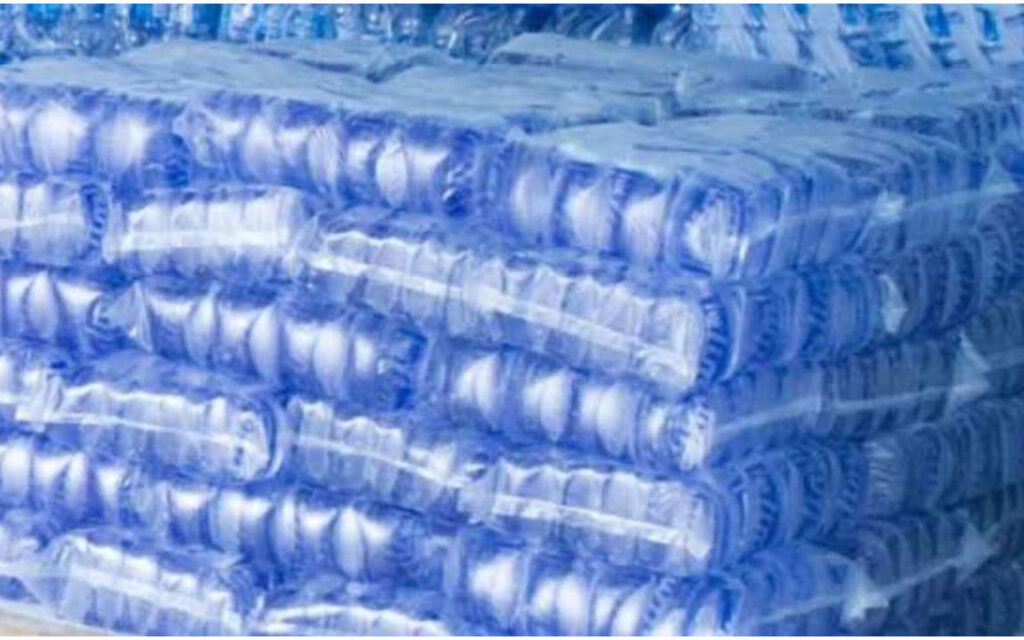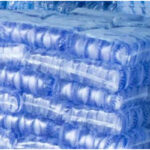
Following the recent increase in sachet water, popularly known as ‘pure water,’ and bottled water by the Association of Table Waters Producers of Nigeria (ATWAP) due to the high cost of diesel, and production, the price of sachet and bottled water have doubled, jumped to N50 and N200 respectively.
The new prices have taken effect across the country as Nigerians battle inflation in the food markets. ATWAP said that for producers to bring quality water to consumers, more would be paid.
The association’s President, Clementina Ativie, said: “As of last year December, we were buying materials (nylon) for N1, 100 per kg. The 6kg of nylon is now N3, 600/N3, 700. The cost of treatment is also high. The prices of these materials change three times in one week. It is also difficult for us to increase the price of water.
“If ordinary Nigerians can’t afford pure water, I don’t know where we are going. Every water producer is funding the pure water factory from personal pockets or borrowed money. Many banks don’t give pure water producers loans. We want Nigerians to bear with us. We don’t want Nigerians to buy water at more than N20 per sachet. The cost of production including the price of diesel has affected us.”
The consequences of this price increase are far-reaching. The once bustling trade of beverage hawkers has withered, their earnings dwindling as patronage shrinks. This dramatic surge, fueled by escalating production costs, has made Sachet water become a luxury and unaffordable in the informal water economy. Some reports indicate a resurgence of iced water sales in states like Oyo and Edo, which may result in health concerns.
The price of one sachet water that used to sell for N10 a few years ago has ballooned to N50 in some areas, while bottled water now sells for N200. Even resourceful Nigerians, once adept at refilling used bottles with cheap convenience, are being forced to choose between a life-sustaining sip and the ever-shrinking pool of their hard-earned naira.
A beverage hawker at Oshodi Market in Lagos, Bolanle Odeyemi, told The Guardian, “People buy more of Sachet water now because bottled water is now N200 and people who used to buy bottled water prefer sachet water being sold at the rate of two for N50. A bag of cold Sachet water is sold at N350, while the latter at N250. A cold pack of bottled water is sold at the rate of N2,000, while the hot one is sold at N1400.”
Mrs Kafayat Olatunji, who also hawks beverages at Oshodi said: “All foodstuffs are costly and that is why we are not making sales anymore. Soft drinks and bottled water are also costly, so people prefer to buy Sachet water.”
A food vendor, Neetu Matthew, said: “Most of our customers go for sachet water because bottled water is expensive. How much will they buy a plate of food before thinking of buying bottled water at the rate of N200 per one? We have been telling them to help us reduce the cost because is it too high; we were buying at least three packs daily but now we hardly sell one pack in two weeks.”
A Consultant Public Health Physician, Dr. Adeyinka Adeniran told The Guardian, more than 50 per cent of people do not have access to potable water in 2022. “People have been trying to bridge this gap because the government is not producing enough water. To live a healthy life, one needs to drink between two to three litres of water every day. This is the recommended amount of water you are supposed to drink.
“If one has to take the normal recommendation of water, one is supposed to take about five to six sachets, which is about N250 or N300 per day, we have not talked about food that the person will eat. So, it is natural that people will look for alternatives. So, I am not surprised that people are going back to the days of iced water.
“Drinking unclean water puts Nigerians at risk of waterborne diseases. The top on the list is cholera. Cholera is a major issue. In Nigeria, we have had cholera outbreaks in several places. Others are Typhoid, Hepatitis A, Dysentery, especially among children and diarrhea disease. They are caused by drinking contaminated water. So, we should now be ready for those kinds of problems again. If nothing is done,” Adeniran said.
Statista reports that between January and August 2023, there were over 3,000 suspected cases of Cholera in Nigeria. The most affected state was Zamfara, with 787 cases. The states of Cross River and Katsina followed, with 718 cases and 302 cases, respectively.
According to the United Nations International Children’s Emergency Fund (UNICEF), poor access to improved water and sanitation in Nigeria remains a major contributing factor to high morbidity and mortality rates among children under five.
Another report by Macrotrends in 2020 shows that an estimated 21.67 per cent of Nigerians had access to clean water, defined as water from an improved source that is accessible on the premises, available when needed, and free from contamination.
Adeniran advised people to provide their water supply and be aware of the dangers of drinking uncleaned water. “Other options in the rural area should be creating sanitary wells.
The National Agency for Food and Drug Administration and Control (NAFDAC) recently clamped down on unregistered water factories. The agency carried out raids on unregistered facilities in several states, shutting down production and seizing contaminated products.













